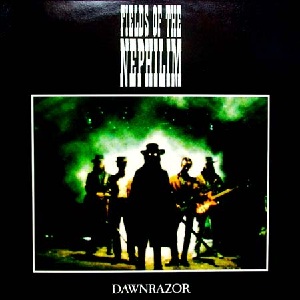Feeding time at the HA zoo - again. This time main course is "FLAC vs. WAV".
129.33.19.254 |
||
| Posted on February 1, 2011 at 14:31:52 | ||
|
Posts: 7181
Location: NJ Joined: September 20, 2006 |
All kinds of experts weigh in on inaudibility of differences between the two. Suffering hissy fits in the process, as usual. What I personally don't understand - why is it so difficult to realize that it's not the contents of the files that matters? NO ONE moves past the argument that no data is lost because of compression. NO ONE even mentions real-time processing and its implications. Of course, the fact that no one there owns a system that can resolve those differences, doesn't help either. The same goes for lack of listening skills of any kind. |
|
| RE: Guess what I advise - I advise to use server based decoding........, posted on February 2, 2011 at 05:16:48 | |
|
Posts: 2440
Joined: July 11, 2007 |
My blog: chapter II. 1.1.1 |
| Got it, thanks! - I had done this, but forgot where the setting was...........nt, posted on February 2, 2011 at 05:25:57 | |
|
Posts: 18449
Location: Minneapolis - St.Paul Area Joined: September 2, 2000 |
nt
 |
| Deaf But Trying? nt, posted on February 2, 2011 at 11:48:13 | |
|
Posts: 6003
Location: Canada Joined: November 10, 2004 |
nt |
| Huh? Can't hear ya... did you say Deaf Butt Trying? N/T, posted on February 2, 2011 at 15:26:52 | |
|
Posts: 7181
Location: NJ Joined: September 20, 2006 |
N/T |
| Sorry, I can't hear too good and my system ain't resolving enough... (nt), posted on February 2, 2011 at 16:03:08 | |
|
Posts: 6003
Location: Canada Joined: November 10, 2004 |
nt |
| RE: "have a hardware issue" - certainly. We all do., posted on February 3, 2011 at 00:17:05 | |
|
Posts: 13158
Location: Kent Joined: June 1, 2002 |
cPlay is hardly the best player! |
| Sure. Or just because I'm right. N/T, posted on February 3, 2011 at 11:16:30 | |
|
Posts: 7181
Location: NJ Joined: September 20, 2006 |
N/T |
| RE: Health Effects of unnecessary microwave WiFi radiation., posted on February 4, 2011 at 13:43:02 | |
| Best to don your tin foil hat - yours has antenna I hear. | |



